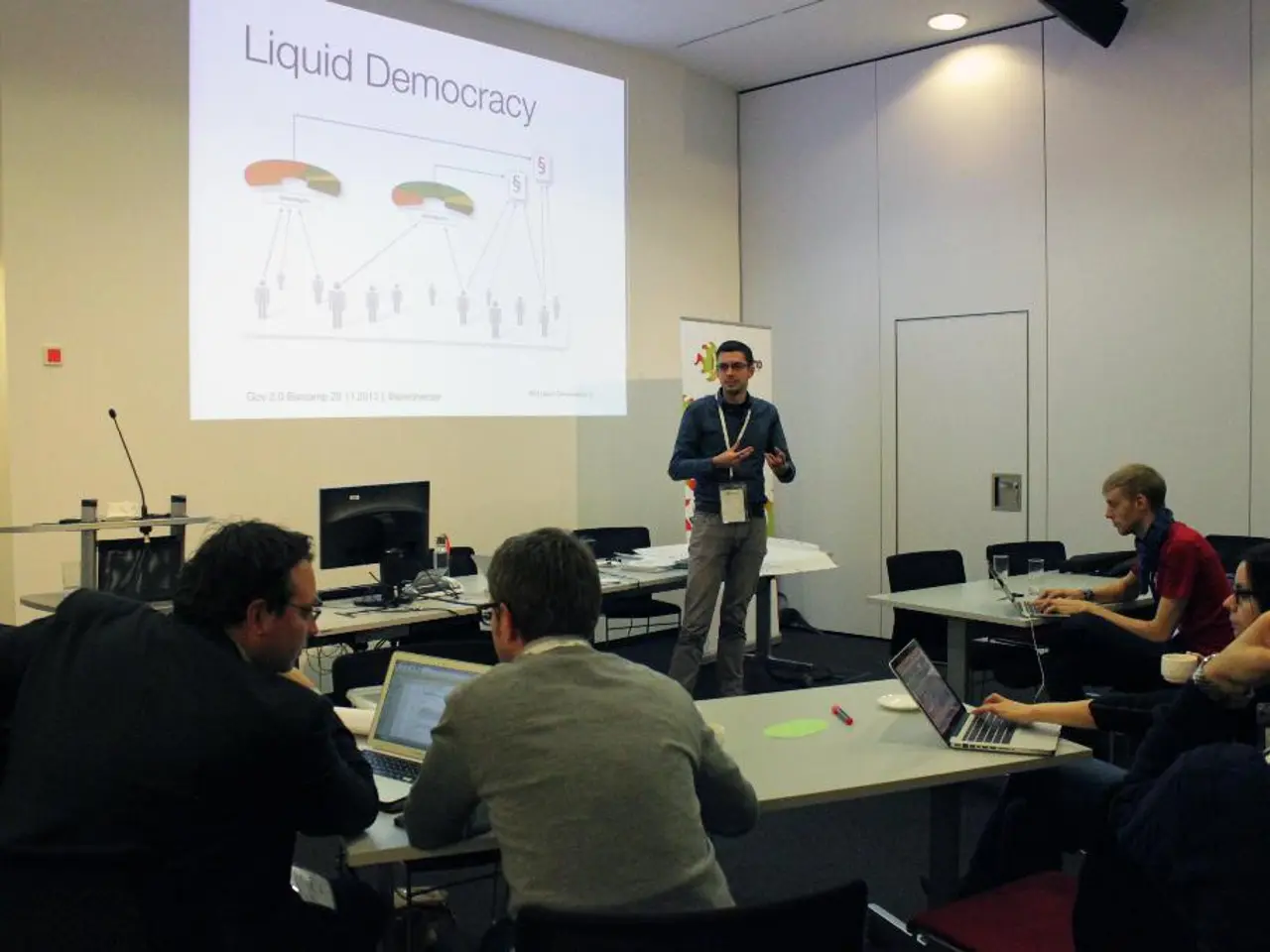Bangladesh convenes initial BEAR summit and semiconductor symposium, aiming to fortify deep-tech aspirations
In a significant stride towards technological advancement, Bangladesh has unveiled a strategic roadmap for semiconductor development, focusing on skills development, policy support, and global partnerships. The roadmap aims to position Bangladesh as a competitive player in the global semiconductor ecosystem [1][2][3].
The roadmap prioritises leveraging Bangladesh's engineering talent and Non-Resident Bangladeshi (NRB) expertise, particularly in chip design and testing stages. A virtual knowledge portal offering tiered certification programs will be created, blending online courses with in-person teaching through selected public and private universities [1][3]. Advanced semiconductor courses, such as VLSI, RTL design, Design for Testability (DFT), and Static Timing Analysis (STA), will be introduced in universities to develop specialized skills [1][4].
To strengthen practical experience, a rotation-based on-site hands-on training program with industry players and universities is proposed [2][3]. Faculty development and curriculum updates will be supported through international collaborations and exchange programs to maintain relevance to evolving technologies like AI accelerators and signal processing [1][2].
On the policy front, the government plans progressive tax exemptions for up to 10 years for R&D and semiconductor assembly/packaging factories [2]. A Semiconductor Fund under the ICT Division or Bangladesh Bank is proposed, modeled on the startup ecosystem, to provide venture capital or term financing for semiconductor initiatives [2][3]. An emphasis on maintaining an investment-friendly and predictable policy regime is indicated to attract both local and foreign direct investment [2][4].
Bangladesh also aims to forge strategic government-to-government (G2G) partnerships for technical cooperation and knowledge transfer, tapping into the experience of NRB academics and industry experts [1][3]. Encouraging international joint ventures, FDI, and collaborative R&D will be crucial to integrate Bangladesh into the regional and global semiconductor value chain [3][4].
Infrastructure development includes establishing industry-standard training labs and vendor-neutral cleanrooms by 2027 to support early-stage chip packaging and testing [3]. National-level outreach programs like hackathons and innovation challenges targeting universities and startups aim to build a robust talent pipeline and stimulate innovation in semiconductor design [2].
Bangladesh is targeting a significant scale-up: currently generating USD 8 million annually from semiconductor exports, with a target of USD 1 billion by 2030 [4]. This strategic roadmap collectively positions Bangladesh as an emerging, technology-driven hub for semiconductor chip design, testing, assembly, and packaging.
The inaugural Biotech, Electronics, AI, and Robotics (BEAR) Summit, held alongside the Bangladesh National Semiconductor Symposium 2025, brought together stakeholders from academia, industry, and the global tech community. The event, jointly organised by the ICT Division and the Bangladesh Computer Council (BCC) under the EDGE Project, saw over 2,500 participants, with 60% being students and 40% professionals. Around 30% joined virtually from abroad [5].
This ambitious plan, centred on building talent, improving policies, and leveraging international cooperation, is a testament to Bangladesh's commitment to joining the global semiconductor ecosystem [1][2][3][4].
[1] The Daily Star, "Bangladesh unveils strategic roadmap for semiconductor development", 2025 [2] Financial Express, "Bangladesh's semiconductor roadmap: Skills development, policy support, and global partnerships", 2025 [3] Dhaka Tribune, "Bangladesh's semiconductor roadmap: A comprehensive guide", 2025 [4] The Business Standard, "Bangladesh's semiconductor roadmap: A game-changer for the economy", 2025 [5] Prothom Alo, "Bangladesh National Semiconductor Symposium 2025: A grand success", 2025
The strategic roadmap for semiconductor development in Bangladesh will incorporate advanced artificial-intelligence (AI) courses, such as VLSI, RTL design, Design for Testability (DFT), and Static Timing Analysis (STA), in university curriculums to foster specialized skills [1][4]. In the quest to position Bangladesh as a global player in the semiconductor ecosystem, the roadmap also aims to harness the expertise of Non-Resident Bangladeshi (NRB) professionals in AI development [1][3].




